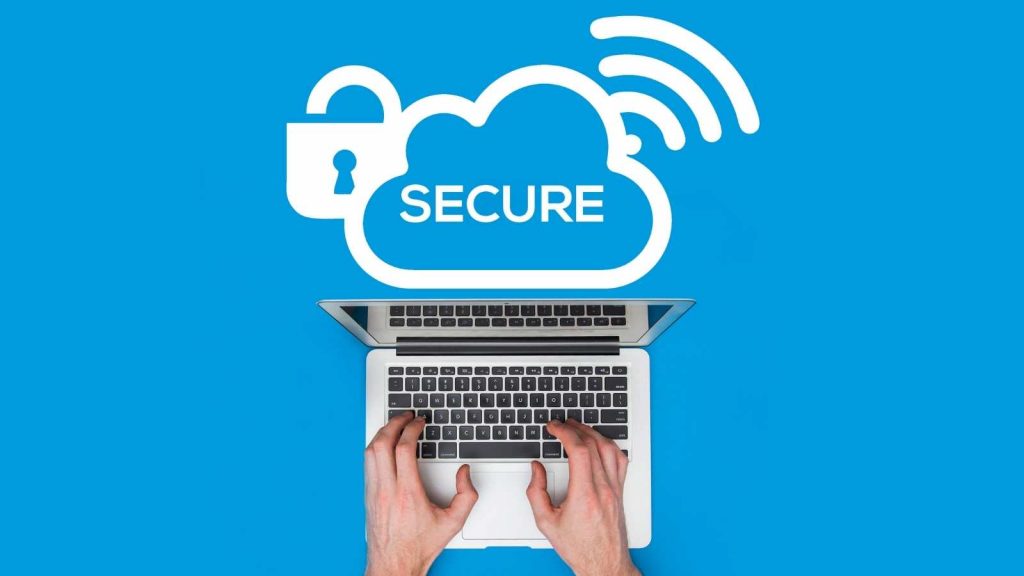eCommerce is the latest and greatest shopping innovation of our time. In 2023 retail from e-commerce sales came to almost $5.8 trillion worldwide. By 2026, that value is set to grow to $8.1 trillion. With numbers like that, it’s no wonder so many companies are racing to get their eCommerce brand started. With that growth has come a rise in eCommerce fraud prevention. That’s where eCommerce fraud detection and protection comes into play for your business.
Table of Contents
Detection Is Key
In 2022, losses amounting to nearly $41 billion were reported in the US alone. (That is double from the year prior!) With constantly evolving digital threats, no online business can claim to be completely safe.
Operating in the online shopping industry requires a robust and proactive approach. Brick-and-mortar businesses have relied on shoplifting tags, cameras and keen-eyed staff. eCommerce businesses are having to adopt and develop their own security technology to combat would-be digital “shoplifters”.
The more popular eCommerce becomes (believe us, this is just the tip of the iceberg), the more common eCommerce fraud is going to be.
To safeguard your company and its customers from things like account takeover, card testing fraud, and more read on. The guidelines we’ve developed will ensure your business doesn’t become another state in what’s set to be one of the world’s most profitable industries.
Best Ways to Protect Your Business From E-Commerce Fraud
Given its massive growth, convenience, and potential as an industry, it’s no surprise that if you own an eCommerce business, protecting your business is a major priority.
If you had a brick-and-mortar business, you would want to know that someone couldn’t just walk in and take what they want. Your brand and its customers need to know that they’re safe. eCommerce is growing exponentially every day. Unfortunately, so is eCommerce fraud.
Whether it’s fraud or a data breach, eCommerce fraud can have a major effect on your brand and its perception for your customers. Your reputation is your brand which is why being able to defend your online business from fraud is so essential.
Invest in Security Software to Prevent eCommerce Fraud
One of the best decisions you can make for your eCommerce business is investing in quality security software.

Effective fraud detection and prevention software have a major role to play in stopping and detecting eCommerce fraud.
Software that can detect fraudsters trying to make purchases using VPN proxies to hide their location is a great example of this. If a fraudster has access to stolen credit cards and intends on using them to make a purchase on your site, they’re going to be routing their IP address to a proxy server.
This hides their actual location and can make them difficult to trace and track.
Software that enables VPN detection via API can be a great eCommerce countermeasure when it comes to this.
Address Verification Service also can make eCommerce fraud incredibly difficult. It does this by checking the billing address submitted by a “customer” with the billing address held by the bank.
Combining these two can have a significant impact on being able to defend your company against eCommerce fraud.
If you’re a small business that can’t afford a dedicated eCommerce security team, a software solution is definitely the way to go. Doing so allows you to provide the protection your business and its customers deserve.
Maintain PCI Compliance
Being PCI (Payment Card Industry) compliant isn’t just an option when it comes to your eCommerce fraud defense. It’s an industry standard you need to observe if you want to be a successful online business.
Being PCI compliant means your eCommerce business measures up to the safety and security standards set by the PCI Security Standards Council. While the full list is much longer than we can list here, there are a few easy points for you to implement.
By practicing good PCI compliance your business has a lot to gain:
- Keeps customer’s information safe and secure
- Safeguards confidential business information from malicious attacks
- Increases consumer confidence and trust which has a direct impact on your sales
- Maintains your businesses reputation which is the key to business longevity
Additionally, not only can failing to be PCI compliant result in potential fines or legal action but the consequences of a breach due to PCI negligence can be disastrous
The damage to your business reputation alone can be a domino effect even the most resilient businesses struggle to come back from.
Require CVV Numbers
More formally known as the Card Verification Value (CVV) or Card Security Code (CSC), requiring customers to use these numbers to make a purchase is going to prevent a lot of eCommerce fraud.
You know that small three or four-digit security code on the back of your bank or credit card? They’re one of the best mechanisms in your anti-eCommerce fraud arsenal. It does this by asking a customer to provide it whenever they make a transaction.
This means customers must physically have their card on them when they make a purchase.
That’s something no bot or hacker is going to be capable of. Unless a customer’s card has been stolen as well as their login details, the odds of a fraudulent payment using CVV or CSV numbers slim to none.
While it’s practically a standard operating procedure for eCommerce businesses today, it still has a major impact on reducing eCommerce fraud. With second-factor authentication becoming more popular, a customer CVV is one of the original and most reliable security methods.
Use HTTPS For Better eCommerce Fraud Prevention
If you’re running an eCommerce business, an HTTPS is the foundation of your eCommerce fraud defense. If you had a physical business, think of HTTPS as the metaphorical lock on your business.
Essentially, HTTPS is a more secure version of the HTTP protocol which secures data sent between a customer’s browser and your site. Using sophisticated encryption technology information like credit card numbers or addresses is protected.
This means transactions are hidden and kept safe from cyber criminals, hackers, or malicious bots.
Not only can this keep your customers safe and protected, but it also has a positive effect on your SEO. Google wants its users to have a safe browsing experience, so using HTTP instead of HTTPS can even wind up reducing your online traffic.
That’s something no eCommerce business wants. Especially since all that’s needed is purchasing an SSL certificate.
Set Limits on Total Purchases for eCommerce Fraud Protection
Limiting a customer’s purchase to a set number of items or value is one of the simplest defenses against eCommerce fraud. It’s a great eCommerce fraud prevention measure you can easily initiate.
This means that if an attacker does manage to penetrate your robust eCommerce defenses, the damage will be minor.
Preventing an attack is obviously the optimal solution. Unfortunately, no matter how hard you try even the biggest, best companies in the world can still be susceptible to eCommerce fraud.
Reducing exposure can often be an incredibly effective mechanism to limit the harm a fraudster can have on your business.
Increase Holiday Vigilance for eCommerce Fraud Prevention
eCommerce stores are becoming more and more popular every year. Especially during a holiday.

Not only do they eliminate the hustle and bustle of festive shopping, but the security, speed, and reliability of online delivery are fast becoming a go-to shopping solution during the holidays.
Black Friday alone has become a mecca for eCommerce sales.

Source of image above.
These sorts of sales figures aren’t unique to Black Friday. Every holiday where people experience the need for gift-giving or shopping has an associated spike in eCommerce fraud.
Being proactive enough to prepare for these big sales is going to go a long way toward protecting your business from fraudulent payments, orders, or hacking. While it may not make the most sense literally, the notion that the best defense is a good offense holds true for eCommerce fraud protection as well.
The holidays are often a crucial time for businesses to make major sales that help carry them throughout the year. The last thing you want is fraudsters souring what should be an amazing period for your business.
By being aware of when fraudsters are likely to target you, you can keep an eye out for red flags, adopt specific, targeted security technology or even manually monitor some of your more expensive sales. You will be glad you did set up eCommerce fraud protection measures!
The added cost of a little extra vigilance is well worth the price for keeping your customers and our business reputation safe. Remember, your reputation is your brand.
Long Story Short on eCommerce Fraud Prevention
If you want to create a successful eCommerce business, protecting that business and its customers is vital.
Online consumers are becoming more and more discerning with the retailers they choose to do business with. Bad reviews, negative press, and word of the mouth can have a far-reaching impact in today’s social media-orientated world.
Not only can eCommerce fraud lead to direct financial loss for you or your customers, but the damage to your reputation can be long-lasting and severe.
Ensure your business never winds up in that position. Follow the tips we’ve provided to help defend your company against the often devastating effects of eCommerce fraud.
I’d love to hear from you if you have experienced eCommerce fraud at your online store. I’d love to know which ecommerce fraud detection measures you have taken since.
- Why Choosing The Right Suppliers and Services Matter More - July 11, 2025
- Instagram Suspended My Account: Immediate Steps To Take - July 11, 2025
- How Location-Based Apps Can Revolutionize Your Business - July 8, 2025




Hello Lisa,
Very Helpful tips you have shared here to prevent eCommerce fraud. We need to use HTTPS and also make our website a PCI complaint. Having a reliable payment gateway like PayPal is a plus point. In 2010, I started an eCommerce website and later shut it down for some personal issues. In that website, I have used 2checkout for accepting credit card payments on my website and it works great for me. Their fraud detection rate is just awesome.
Regards,
Vishwajeet Kumar
Thank you Vishwajeet. Yes, HTTPS is significant and even without eCommerce, I believe it is now an SEO ranking factor. That’s good to hear about PayPal but I know there are more competitors out there now than ever before. Thanks for your feedback on this one and have a great day Vishwajeet.